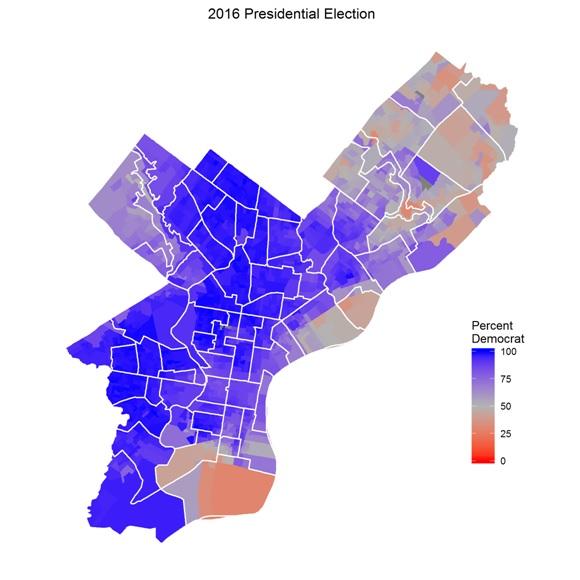Philadelphia’s Political Landscape: The Rising Challenge of Wealthy Donor Influence
The Escalating Role of Big Money in Philadelphia Politics
In Philadelphia, the growing dominance of affluent donors is increasingly shaping political outcomes and governance, casting doubt on the city’s commitment to fair representation. Despite the efforts of the city’s Ethics Board, the surge of financial contributions from wealthy individuals and influential corporations continues to sway election results and policy decisions, often sidelining the needs of everyday residents. This trend threatens to undermine democratic values by prioritizing monetary power over community interests.
Contributing factors to this growing imbalance include:
- Exploitable gaps in campaign finance regulations that permit unregulated “soft money” donations.
- Opaque disclosure practices that hinder public insight into donor identities and funding sources.
- Robust lobbying campaigns that advance private agendas at the expense of broader civic priorities.
| Group | Level of Financial Influence | Policy Impact |
|---|---|---|
| Major Corporations | Very High | Advocacy for deregulation and tax incentives |
| Political Action Committees (PACs) | Moderate | Shaping candidate platforms and campaigns |
| Individual Wealthy Donors | Variable | Influence on local zoning and development projects |
Philadelphia’s predicament mirrors a nationwide challenge, but the urgency here is palpable. Without decisive reforms—such as closing loopholes, enhancing transparency, and empowering oversight bodies—the disproportionate influence of high-dollar donors will continue to erode public confidence and marginalize grassroots voices.
Philadelphia Ethics Board: Battling Against the Tide of Wealthy Donor Influence
The city’s Ethics Board, charged with safeguarding transparency and fairness in political financing, has recently faced significant obstacles. Legal challenges and political resistance have weakened its ability to hold affluent contributors accountable, raising questions about the effectiveness of current regulations in curbing the infiltration of big money into Philadelphia’s political system.
Several key issues have contributed to the board’s diminished authority:
- Restricted Enforcement Capabilities: The board lacks sufficient power to impose impactful sanctions on repeat offenders among wealthy donors.
- Complex Legal Loopholes: Sophisticated financial arrangements exploit gaps in disclosure and reporting requirements.
- Political Interference: Pressure from influential stakeholders has led to attempts to weaken the board’s oversight functions.
| Donor Type | Declared Contributions (2023) | Reported Compliance Violations |
|---|---|---|
| High-Net-Worth Individuals | $14.7 Million | 10 |
| Corporate Donors | $24.1 Million | 6 |
| Political Action Committees (PACs) | $11.3 Million | 4 |
How Financial Power Shapes Philadelphia’s Policy Decisions
The influence of substantial financial contributions extends beyond campaign funding, directly affecting the city’s policymaking landscape. Wealthy donors and special interest groups leverage their resources to guide legislative priorities, often at odds with the broader public good. This dynamic creates a political environment where elected officials may feel beholden to their largest backers rather than their constituents.
Key mechanisms through which financial clout impacts governance include:
- Intensive Lobbying: Well-funded lobbying efforts ensure that donor priorities are communicated directly to policymakers.
- Campaign Dependency: Large-scale donations foster reliance that can compromise officials’ impartiality.
- Resistance to Regulation: Attempts to tighten campaign finance rules frequently encounter legal challenges and political opposition.
| Influential Entity | Financial Leverage | Policy Outcomes |
|---|---|---|
| Real Estate Developers | High | Relaxed zoning regulations |
| Business Lobby Groups | Medium | Tax breaks and incentives |
| Ethics Oversight Bodies | Low | Limited enforcement capacity |
Enhancing Oversight and Transparency: Pathways to Rebuild Public Confidence
To restore trust in Philadelphia’s political system, it is imperative to establish a more rigorous and transparent framework for campaign finance oversight. The recent setbacks experienced by the Ethics Board highlight the necessity for reforms that empower watchdog agencies and increase public access to information about political spending.
Recommended reforms to strengthen democratic integrity include:
- Implementing mandatory, detailed financial disclosures for all candidates and political committees.
- Granting the Ethics Board autonomous authority with enforceable penalties for violations.
- Developing real-time, publicly accessible digital platforms to track campaign contributions and expenditures.
- Hosting regular community forums to engage citizens in monitoring political finance and ethics.
| Oversight Component | Current Condition | Proposed Enhancement |
|---|---|---|
| Campaign Finance Reporting | Often delayed and incomplete | Adoption of real-time digital reporting systems |
| Ethics Board Enforcement | Limited sanctioning power | Expanded investigative and punitive authority |
| Public Participation | Minimal transparency and engagement | Regularly scheduled citizen oversight forums |
Conclusion: The Ongoing Battle for Ethical Governance in Philadelphia
As Philadelphia confronts the persistent challenge of big money’s influence in its political sphere, the recent hurdles faced by the Ethics Board serve as a stark reminder of the complexities involved in enforcing transparency and accountability. The city’s future depends on sustained efforts to reform campaign finance laws, empower oversight institutions, and engage the public in governance. Only through these measures can Philadelphia ensure that political power truly reflects the will of its citizens rather than the interests of a privileged few.


